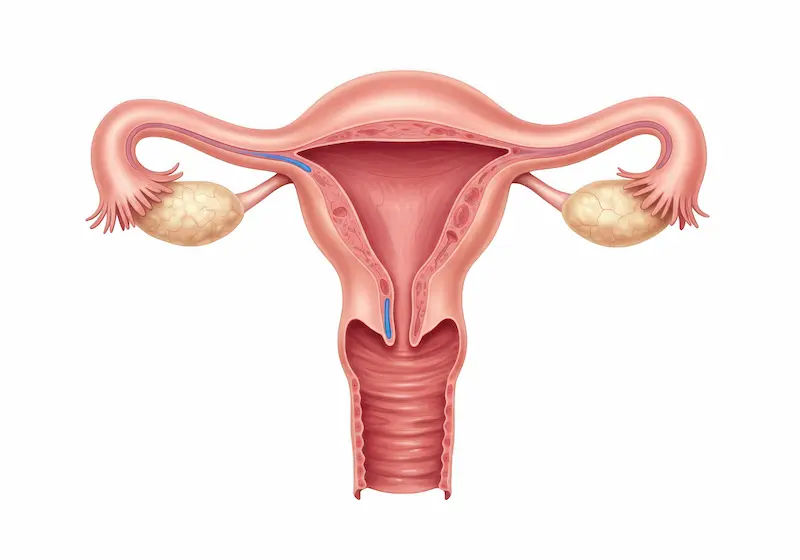Signs Of Monsoon Illness Prevention
Learn how to identify early signs of monsoon illnesses and adopt effective prevention strategies. Stay healthy during the rainy season with tips on hygiene, immunity, and mosquito control.

Written by Dr. Rohinipriyanka Pondugula
Reviewed by Dr. M L Ezhilarasan MBBS
Last updated on 13th Jan, 2026

Introduction
The pitter-patter of rain, the earthy petrichor scent, and the lush green landscapes make the monsoon a beloved season. However, this beautiful transformation also brings a surge in humidity and creates ideal conditions for germs and mosquitoes to thrive. This season, a proactive approach to health is your best shield. Instead of just treating illnesses, learning to recognise the early signs of monsoon illness and implementing robust prevention strategies can ensure you enjoy the rains without the health woes. This comprehensive guide will walk you through understanding the risks, identifying warning signals, and adopting effective habits for complete monsoon illness prevention.
Why the Monsoon Season is a Hotbed for Illness
The monsoon doesn't create new diseases but amplifies the spread of existing ones. Understanding the "why" behind this surge is the first step toward effective prevention.
How Increased Humidity Affects Your Health
High humidity levels during the monsoon slow down the evaporation of sweat, making it harder for your body to regulate temperature. This creates a sticky, uncomfortable feeling and can lead to fatigue. More critically, humid environments are perfect for the growth of fungi, mold, and dust mites, which can trigger allergies, asthma, and skin infections. A study published in the Journal of Allergy and Clinical Immunology has shown a direct correlation between high humidity and increased indoor allergen levels.
Stagnant Water: The Perfect Breeding Ground for Mosquitoes
Even a small cap of water left undisturbed for a week can become a nursery for thousands of mosquito larvae. Stagnant water in coolers, plant pots, discarded tires, and clogged drains is the primary reason for the spike in vector-borne diseases like dengue, malaria, and chikungunya during the monsoon. The Aedes aegypti mosquito, responsible for dengue, is a daytime breeder and prefers clean water, often found in and around our homes.
Contaminated Water and Food: The Hidden Dangers
Heavy rains can overwhelm drainage systems, leading to the mixing of sewage with drinking water sources. This contamination is the root cause of waterborne diseases like typhoid, cholera, hepatitis A, and severe gastroenteritis. Similarly, food, especially street food and raw vegetables, can easily get contaminated if washed with unclean water or exposed to flies, leading to food poisoning.
Consult a General Physician for the best advice
The Early Warning Signs: Listening to Your Body
Early detection can significantly reduce the severity and duration of an illness. Here’s how to differentiate a common cold from something more serious.
Fever: More Than Just a Change in Weather
Fever is the body's universal response to infection. However, the pattern of fever can be a clue. A continuous high fever could point to Typhoid, while a fever with chills and rigors is classic for malaria. Dengue often presents with a sudden high-grade fever, severe body pain, and a rash. Monitoring your temperature and associated symptoms is crucial.
Gastrointestinal Red Flags: When to Be Concerned
Vomiting, diarrhea, and stomach cramps are common signs of food or water-borne infections. While mild cases can be managed with hydration, watch for red flags like blood in stools, persistent vomiting leading to dehydration (dry mouth, dizziness, no urine output), or high fever. These symptoms of waterborne diseases require immediate medical attention.
Respiratory Symptoms: Cold, Flu, or Something More?
The sudden drop in temperature and increased moisture can lead to a rise in viral infections causing sore throat, cough, and cold. While most are self-limiting, if symptoms are accompanied by high fever, difficulty breathing, or chest pain, it could indicate a more severe infection like pneumonia.
Muscle and Joint Pain: A Key Sign of Vector-Borne Diseases
Severe body ache, especially muscle and joint pain, is a hallmark of chikungunya and dengue. In chikungunya, the joint pain can be debilitating and persist for weeks or even months. If you experience fever accompanied by intense joint pain, it's essential to consult a doctor.
Your Home Fortress: Prevention Starts Indoors
Creating a safe and clean environment is the cornerstone of monsoon illness prevention.
Mosquito-Proofing Your Living Space
This is non-negotiable. Use window and door screens. Sleep under mosquito nets. Empty and clean all water containers—coolers, flower vases, and pet water bowls—at least once a week. Use government-approved mosquito repellents like mats, coils, or plug-in devices. Consider introducing mosquito repellent plants like citronella and lemongrass on your balcony.
Ensuring Safe Drinking Water and Food Hygiene
Boil your drinking water for at least 10-15 minutes or use a reliable water purifier. Always wash fruits and vegetables thoroughly, preferably with a rinse of warm water. Avoid eating cut fruits and raw street food. Consume freshly cooked meals and refrain from storing food for long periods. This is the most effective way to prevent waterborne diseases during monsoon.
The Importance of Dry and Clean Surroundings
Damp walls and wet corners are breeding grounds for fungus. Ensure proper ventilation in your home to reduce humidity. Use disinfectants to clean floors and bathrooms regularly. Keep your shoes and rain gear dry and clean to prevent fungal foot infections.
Personal Protection: Habits for a Healthy Monsoon
Your daily habits are your personal shield against monsoon maladies.
Smart Clothing Choices to Deter Mosquitoes
Wear light-coloured, full-sleeved clothing and long pants when outdoors, especially during early mornings and late afternoons when mosquitoes are most active. This provides a physical barrier against bites.
Personal Hygiene: Your First Line of Defense
The simplest acts are the most powerful. Wash your hands frequently with soap and water, especially before eating and after coming home from outside. Carry a hand sanitiser for times when soap and water aren't available. Take a shower immediately if you get drenched in the rain to normalise your body temperature and wash off any contaminants.
Boosting Your Immunity from Within
A strong immune system is your best internal defense. Focus on a balanced diet rich in vitamin C (amla, citrus fruits), antioxidants (berries, nuts), and probiotics (yoghurt, buttermilk). Stay well-hydrated with warm water, herbal teas, and homemade soups. Adequate sleep and managing stress also play a vital role in maintaining robust immunity.
When Home Care Isn't Enough: Seeking Medical Help
While prevention is key, timely medical intervention is critical when illness strikes.
Recognising Severe Symptoms That Need a Doctor
Do not ignore symptoms like a fever lasting more than 48 hours, severe headache, persistent vomiting, difficulty breathing, chest pain, or signs of dehydration. For diseases like dengue, a drop in platelet count can be dangerous. If symptoms persist or worsen, consult a doctor online with Apollo24|7 for a prompt evaluation and guidance.
The Role of Diagnostic Tests in Monsoon Illness
Self-diagnosis can be risky. Doctors often recommend specific tests to identify the exact pathogen. For instance, a blood test can confirm malaria or dengue, while a widal test or blood culture helps diagnose typhoid. Accurate diagnosis is essential for effective treatment. Apollo24|7 offers a convenient home collection for tests like CBC or specific pathogen tests, ensuring you get accurate results without stepping out in the rain.
Conclusion
The monsoon season is a time to be enjoyed, not feared. By understanding the risks, being vigilant about the early signs of monsoon illness, and adopting a multi-layered approach to prevention, you can safeguard your health and that of your family. It boils down to maintaining cleanliness in your environment, practicing good personal hygiene, making smart dietary choices, and knowing when to seek professional help. Empower yourself with this knowledge, and you can dance in the rain with confidence and good health. Stay dry, stay clean, and stay healthy!
Consult a General Physician for the best advice
Consult a General Physician for the best advice

Dr. Rajib Ghose
General Physician/ Internal Medicine Specialist
25 Years • MBBS
East Midnapore
VIVEKANANDA SEBA SADAN, East Midnapore
Dr. Kanupriya Mishra
General Physician
30 Years • MBBS(GENERAL PHYSICIAN)
Bengaluru
Apollo Clinic, Sarjapur Road, Bengaluru

Dr. Pinaki Mukhopadhyay
General Physician/ Internal Medicine Specialist
33 Years • MBBS
Kolkata
MCR SUPER SPECIALITY POLY CLINIC & PATHOLOGY, Kolkata
(25+ Patients)

Dr. Khuda Baksh Nagur
General Physician/ Internal Medicine Specialist
11 Years • MBBS, MD (GENERAL MEDICINE), Certificate Programme clinicians in Diabetes Management
Bengaluru
Medwin multispeciality clinic, Bengaluru
(25+ Patients)

Dr. Swaroopa Rani
General Physician/ Internal Medicine Specialist
9 Years • MBBS, MD (Internal Medicine)
Bengaluru
Apollo Medical Center, Marathahalli, Bengaluru
Consult a General Physician for the best advice

Dr. Rajib Ghose
General Physician/ Internal Medicine Specialist
25 Years • MBBS
East Midnapore
VIVEKANANDA SEBA SADAN, East Midnapore
Dr. Kanupriya Mishra
General Physician
30 Years • MBBS(GENERAL PHYSICIAN)
Bengaluru
Apollo Clinic, Sarjapur Road, Bengaluru

Dr. Pinaki Mukhopadhyay
General Physician/ Internal Medicine Specialist
33 Years • MBBS
Kolkata
MCR SUPER SPECIALITY POLY CLINIC & PATHOLOGY, Kolkata
(25+ Patients)

Dr. Khuda Baksh Nagur
General Physician/ Internal Medicine Specialist
11 Years • MBBS, MD (GENERAL MEDICINE), Certificate Programme clinicians in Diabetes Management
Bengaluru
Medwin multispeciality clinic, Bengaluru
(25+ Patients)

Dr. Swaroopa Rani
General Physician/ Internal Medicine Specialist
9 Years • MBBS, MD (Internal Medicine)
Bengaluru
Apollo Medical Center, Marathahalli, Bengaluru
More articles from General Medical Consultation
Frequently Asked Questions
1. What is the most common monsoon illness?
Viral fever, flu, and gastroenteritis are among the most common illnesses due to sudden weather changes and contaminated food/water. However, vector-borne diseases like dengue and malaria are the most concerning.
2. How can I boost my immunity naturally during the monsoon?
Incorporate immunity-boosting foods like turmeric, ginger, garlic, citrus fruits, and yoghurt into your diet. Herbal teas with tulsi (holy basil) and ginger are excellent. Ensure you get adequate sleep and manage stress.
3. Are there any specific foods to avoid in the monsoon?
It's best to avoid raw street food, leafy vegetables (unless washed very thoroughly), cut fruits from vendors, and fried foods that may be prepared in unhygienic conditions. Also, limit seafood as it spoils quickly.
4. What are the first signs of Dengue?
The first signs are often a sudden high fever (104°F), severe headache, pain behind the eyes, and significant muscle and joint pain. A skin rash may appear a few days after the fever starts.
5. Is it safe to drink milk during the monsoon?
Yes, but it must be boiled thoroughly before consumption to kill any harmful bacteria. Avoid consuming raw or unpasteurised milk.


.webp)

